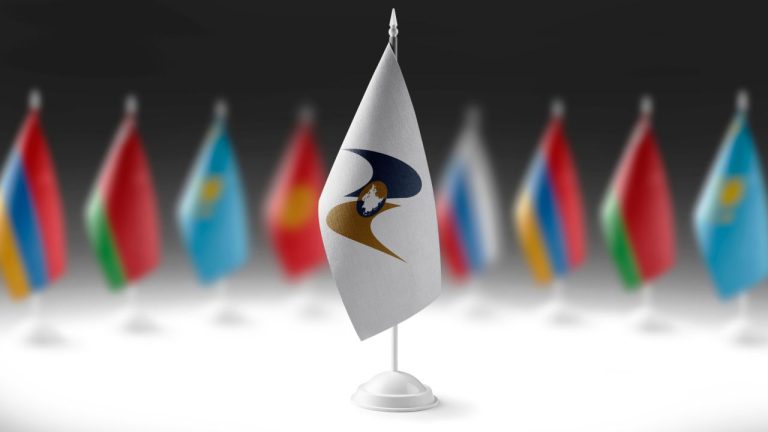
Trading within a Russia-led regional organization has effectively moved away from the U.S. dollar, according to the deputy head of the Russian government. The use of national currencies in the bloc’s transactions has reached around 90%, the official pointed out.
EAEU Replaces Dollar in Trade With National Currencies, Russian Official Says
Trade between member states of the Eurasian Economic Union (EAEU) has been “de-dollarized,” Russia’s Deputy Prime Minister Aleksey Overchuk told media on the sidelines of the organization’s summit in Moscow.
Asked by journalists whether it’s realistic to completely give up on the U.S. dollar, Overchuk noted that the greenback did have its role but emphasized it was not Russia who “weaponized” it, referring to multiple statements in that vein by Russian President Vladimir Putin.
“When we are cut off from the dollar and from the euro, we will definitely not sit idly by. We will look for other currencies for mutual settlements,” the representative of the executive power in Moscow elaborated, quoted by the Belta news agency, and added:
As to how long the dollar will last … Well, we do not really care.
Overchuk pointed out that national currencies were used in 89% of the intra-EAEU transactions for the purchase and sale of goods during the first quarter of 2023. “In March, this figure was 90%. Therefore, we believe that de-dollarization is already a reality in the Eurasian Economic Union,” he concluded.
EAEU unites some of the former Soviet states in Europe and Asia. The trade bloc was established in 2014 by Russia, Belarus, and Kazakhstan while the accession of Armenia and Kyrgyzstan was agreed the following year. Moldova and Uzbekistan have been granted observer status.
Also this week, the Chairman of the Board of the Eurasian Economic Commission, the EAEU’s executive body, urged two other international organizations with Russian participation to adopt joint policies on the use of digital currencies.
According to Mikhail Myasnikovich, the EAEU, BRICS (Brazil, Russia, India, China, and South Africa) and the China-led Shanghai Cooperation Organization (SCO) should also launch a common card payment system. Both BRICS and SCO are taking steps to move away from the dollar, too.
Transition to payments in national currencies has been a key goal for Moscow’s ‘de-dollarization’ policy. It has won support from allies and partners amid an ongoing clash with the West that has severely restricted Russia’s access to global finances and markets since its invasion of Ukraine.
Do you think the members of other international organizations will also transition to settlements in national currencies? Tell us in the comments section below.
from Bitcoin News https://ift.tt/K9ZYBSU
Comments
Post a Comment